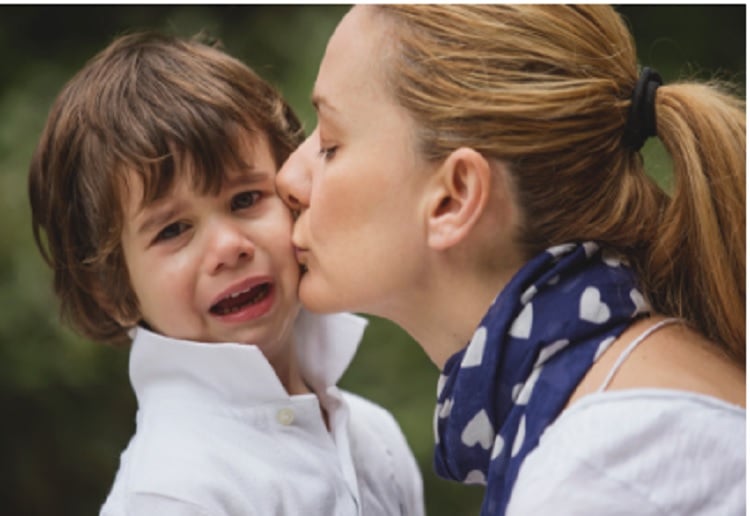Death happens to everyone, yet it is still considered a ‘taboo’ topic to talk about. In particular, there is a general misconception adults have when discussing death with their children.
They either think that children don’t understand death or it’s harmful to discuss death with them and that children should be shielded from this concept. Although this mindset comes from a good place, it goes against the natural resilience that children have.
Surprisingly only 24% of people feel comfortable talking about death, dying or loss with a child, according to the Beyond Taboos report . However, statistics show that 43% of people have experienced the death of someone close to them under the age of 16 , emphasising how important it is to have the conversation.
“If discussions about death with children are avoided, it sends the message that death should be feared instead of being a part of life,” says Kerrie Noonan, Clinical Psychologist and Director of The GroundSwell Project.
“It is crucial for parents and guardians to be informed and able to talk about death with their kids. It is all about trust and honesty – parents make sure children can come to them to talk about anything. The topic of death is no different than talking about sex, bullying and mental health,” says Kerrie.
“In Australia, ‘death literacy’ is not a well-established concept yet, however it should be. Death literacy is the practical know-how needed to plan well for end-of-life.
It encompasses learning through experiences, skills, knowledge and taking action. If adults, particularly parents are educated in this area, not only will it strengthen the relationship with their children, but also the communities’ capacity to take action and care for one another at times of dying, death, loss and grief,” says Kerrie.
Kerrie shares the top five tips parents and guardians should implement when it comes to talking to children about death.
1. Don’t compare death to sleeping
“Never compare death to sleeping – avoid phrases such as ‘grandma has gone to sleep’. It can be very confusing and scary! It can also make children afraid of falling asleep. After all, sleeping is something people who are alive do.”
2. The significance of inclusion
“There is no ‘best age’ to talk about death. The best time to talk about it is when it happens. It is through experience that people learn best, so include children in hospital visits and in dying rituals, especially if someone the child is close to is expected to die. This gives them a warning and sufficient time to come to terms with it. You can include children by giving them a small job to complete. In these situations, it is ideal to have something to do to feel helpful when you or the child might be feeling helpless.”
3. Use plain language
“When it comes to learning and understanding, young children often tell adults their preference is for us to use simple words and phrases. When it comes to discussing death, use plain language such as dead, died, their heart stopped and coffin. An example to say is ‘his heart stopped beating and then his body stopped working and he died’. This method also applies when answering questions. Respond in a factual and straightforward way.”
4. Teachable moments
“Utilise opportunities and teachable moments when they arise. They are a natural segue to start a conversation about death. For example, don’t flush the goldfish or quickly replace pets that die. Children learn a great deal from pet funerals and about grief. It also helps parents and adults build their skills in discussing death with children.”
5. Be honest and give children space
“There is no need to rush children when it comes to talking about death or the grieving process. Grief usually comes in short intense bursts. Children tend to grieve differently to adults and conversations may take place over several days, weeks or months as they become more curious. Go at their pace and always be honest and upfront with them. Don’t make up false information or missing facts if you don’t know, as those can be more damaging than the actual truth. The best way is to tell them you are unsure and will find out more details for them. ”
Share your comments below





















4:38 pm
3:39 pm
3:21 pm
2:43 pm
2:33 pm
2:21 pm
2:11 pm
- «
- 1
- 2
Post a commentTo post a review/comment please join us or login so we can allocate your points.